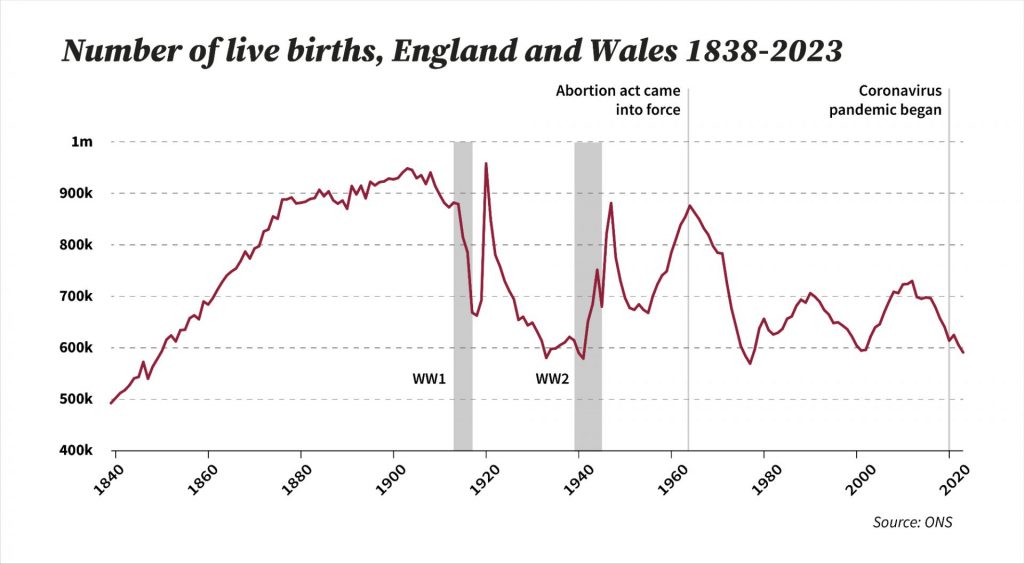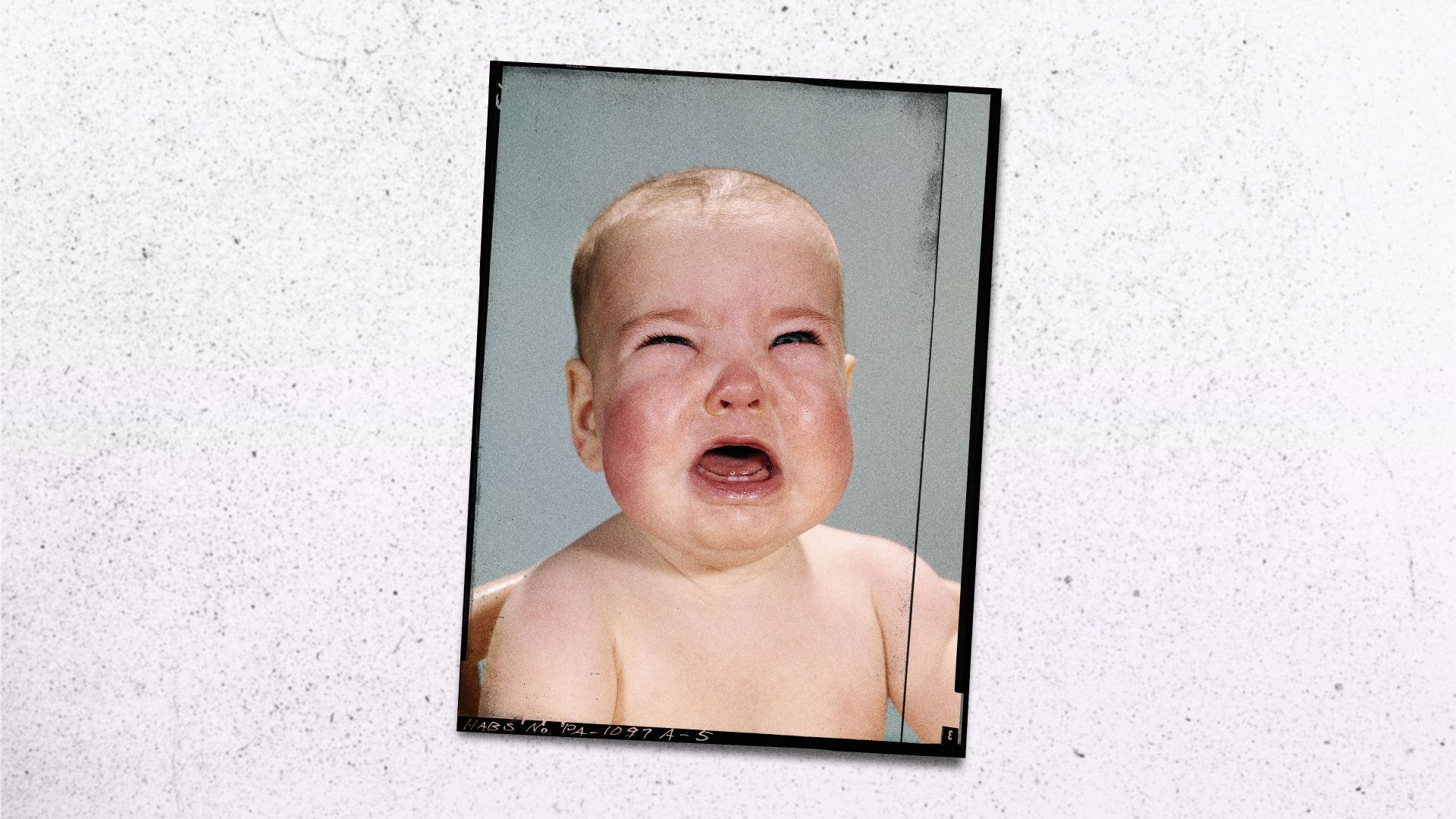We have just witnessed a seismic moment for the UK’s economy, one that had nothing to do with Donald Trump’s election or Rachel Reeves’s budget. It was the release of the Office for National Statistics’ latest data on births in England and Wales.
In 2023 there were just 591,000 live births in England and Wales (Scotland and Northern Ireland publish their own figures), the lowest number since 1977. The total fertility rate dropped to 1.44 children per woman, the lowest rate since records began in 1838.
To put that in context, just to stop the population from falling a country needs a fertility rate of 2.1 children per woman. Unbelievably, our fertility rate is now lower than it was during the dark days of the second world war, when millions of men and women were separated for the duration.
The fertility rate in the UK, like nearly all of the western world, has been falling since the postwar baby boom ended in the early 1960s, with the rate of decline accelerating over the last 10 years. The reasons are various, but in general, the better educated women are, the fewer children they have. In addition, an economy where childcare costs are ruinous, both parents have to work to live, and maternity and paternity benefits are derisory is not conducive to a high birth rate.
The consequences of this are massive and will hit most of the western world over the following decades. The UK’s fertility rate is the fastest falling in the G7 at the moment, but others are already lower – in Japan and Italy the rate is 1.2, with Germany slightly higher. The USA’s rate is 1.6, while France’s is the highest in Europe at around 1.8.
France is an interesting case because it gives families huge amounts of support – good, cheap childcare, great education and lower taxes for parents. All that and still France cannot get its birth rate up to anywhere near 2.1.
Why does a falling birth rate matter so much to the UK? For a start, an ageing population puts increasing pressure on the government’s finances. According to current projections, there will be 25% more pensioners by 2050. If we keep today’s policies, including the triple lock, that means spending on pensions will increase by 1.2% of GDP by 2050.

But this is only the start, because old people use the NHS far more than the young, and in order to take that into account, by 2050 spending on health and social care will have to rise by 4.1% of GDP. That’s an extra 5.3% of GDP just to look after the elderly.
Finding that means either much higher taxes, much higher borrowing or massive spending cuts in other departments. When even abolishing the entire defence budget would save you just over 2% of GDP, finding an extra 5.3% by 2050 from cutting spending will be virtually impossible.
And the money to pay for those pensioners will come from a relatively small cohort of workers. At the moment there are about 300 pensioners for every 1,000 workers in the UK; by 2042, the ONS calculates there will be 367 pensioners for every 1,000 workers. The maths is remorseless; to keep the ratio the same as today would mean an ever-later retirement age – it would have to rise to 70 or 71 very quickly. That is just not going to happen, given political pressures.
This all helps to explain why the new government is so driven to grow the economy, fast. One way to do this is fairly obvious – if you are not having enough children to provide enough future workers to replace retirees, then you just have to import them.
As Professor Jonathan Portes pointed out in research for the UK in a Changing Europe thinktank just before the election, successfully cutting immigration is also successfully cutting your own throat. He wrote: “Since just before the pandemic, all job growth – and indeed such economic growth as the UK has had – has been driven by immigration. While the number of UK-born workers has fallen over the last five years, the number born outside the EU has increased by well over a million.”
The Office for Budget Responsibility now bases its calculations on the future of the British economy on immigration of 315,000 a year from 2027 onwards, and says that immigration 200,000 higher than that would enhance growth by a further 1.5% a year. Meanwhile, the last government’s desperate drive to cut immigration has made us all worse off.
The OBR even told the government so at the time. Its “low migration” scenario showed that cutting immigration would increase borrowing by about £14bn a year in 2028-29, and “raise the debt-to-GDP ratio – the government’s key fiscal target – by about 2.5%, or about £75bn.” But despite this, the Tories just saw that immigration was unpopular with their core voters and tried to drive it down.
It’s a great irony that those who voted for the Conservatives and Reform at the general election tended to be older. Only 13% of students did so, but 57% of pensioners did. They are exactly the people who will increasingly be – maybe even are now – dependent on foreign-born doctors, nurses, and care workers. They will also depend on the money earned and taxes paid by immigrants in other sectors of the economy, which will ultimately finance their pensions and care.
The boomers have had free healthcare, free education (including at university) and full employment. Many of them have capitalised on final salary pensions and soaring property prices.
Now their opposition to immigration means that in order to look after them in their old age, their children will have to work longer and harder, and pay higher taxes. Childish, really.




